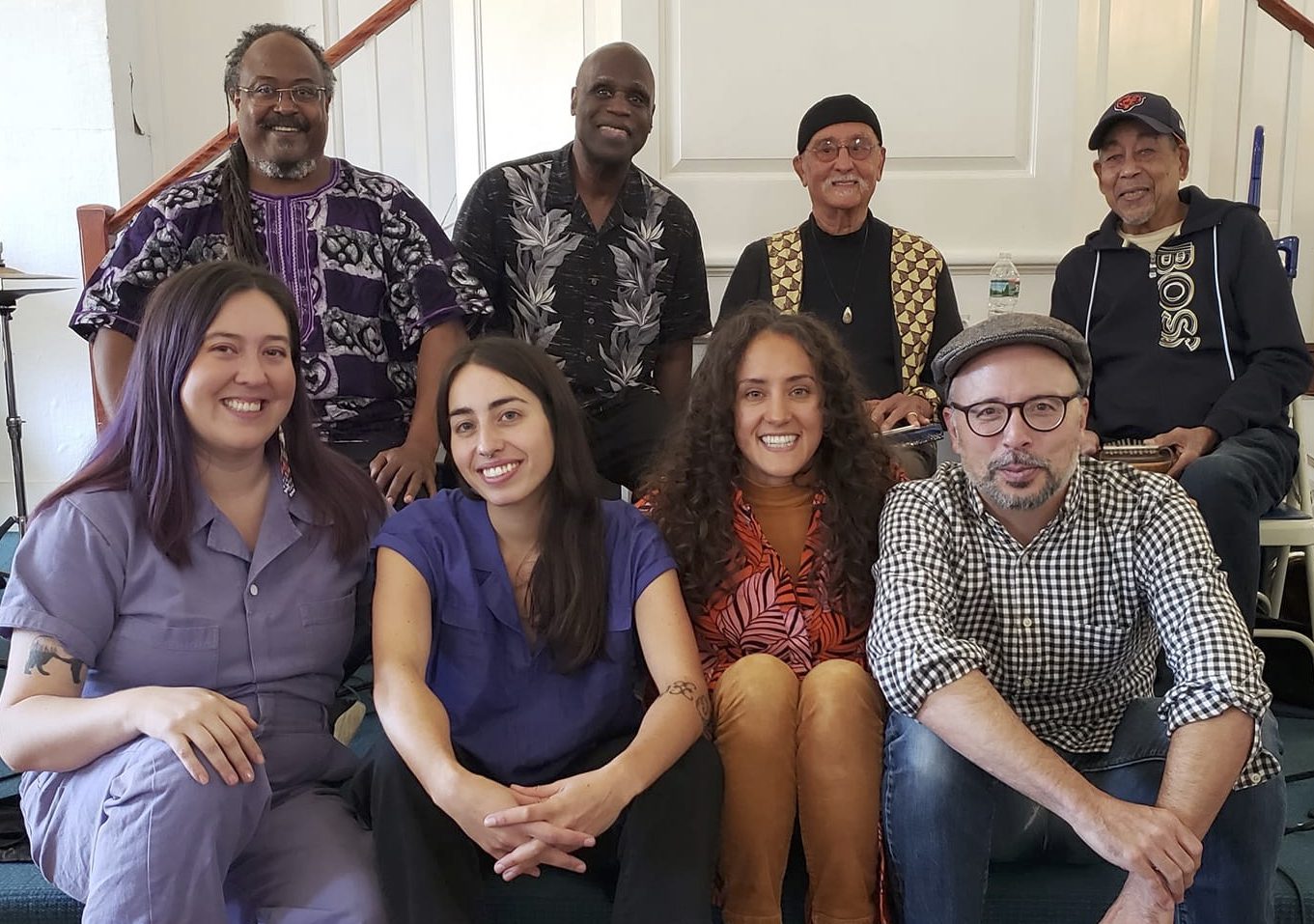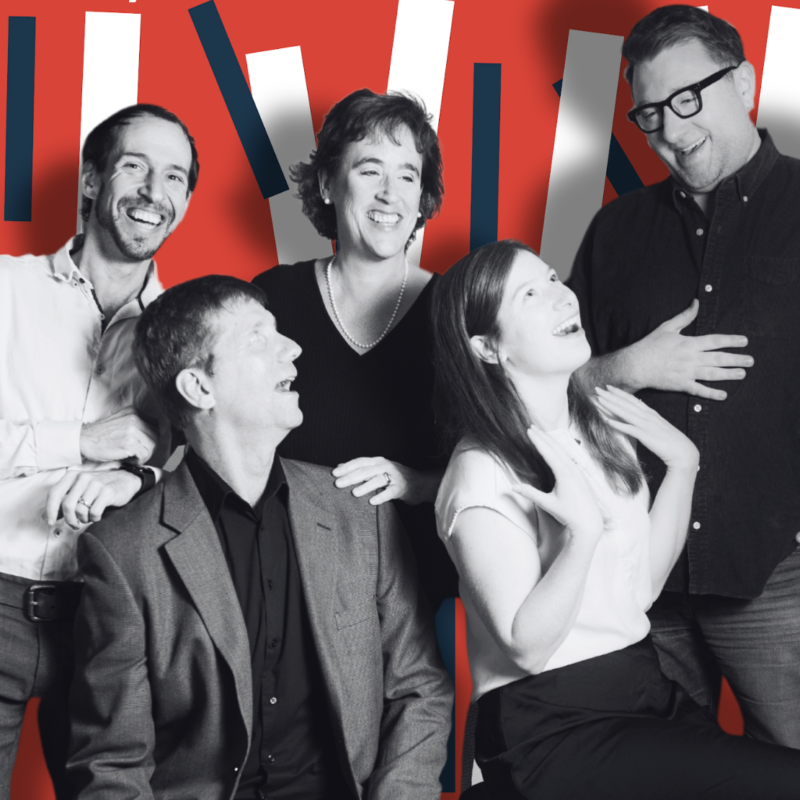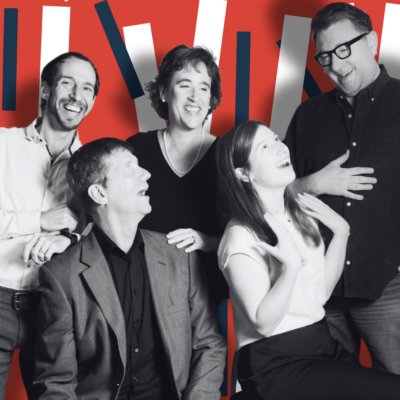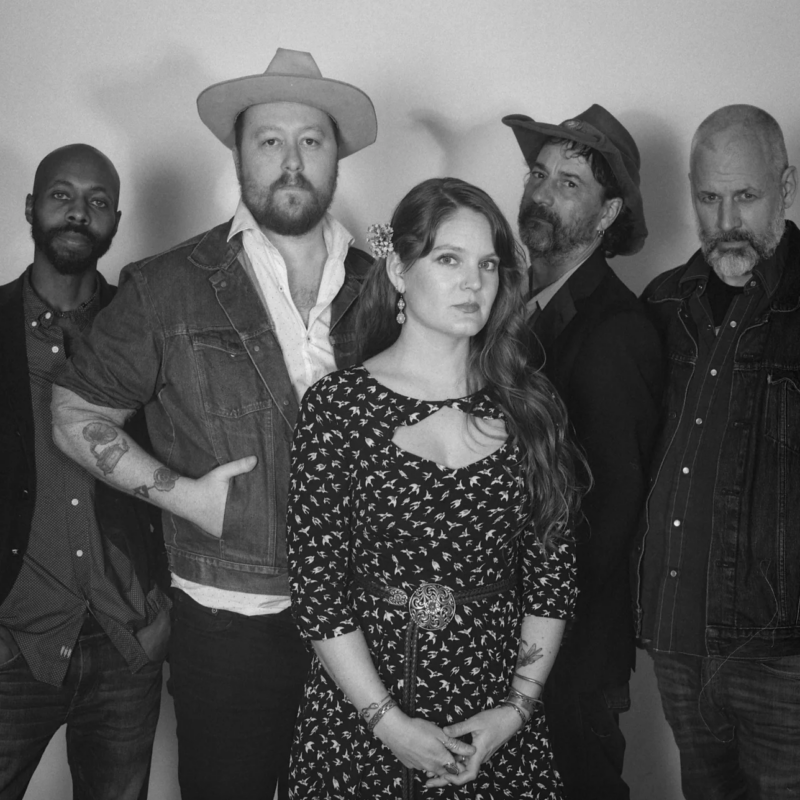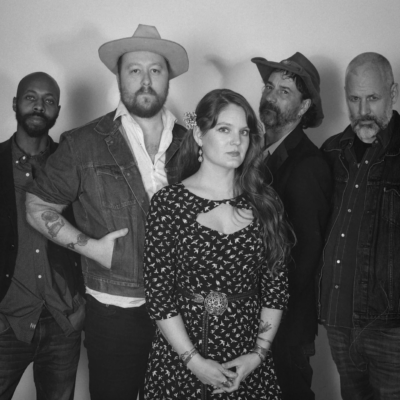The concert begins with a thunderous gong and booming timpani.
As the intro song progresses, a guttural drone pulses, seemingly from beneath the audience’s feet, while the breathy undulation of a distant horn floats over the rumble.
Audiences new to Bill Cole’s Untempered Ensemble may not immediately recognize what they’re hearing. That’s because they’re listening to a didgeridoo and a conch shell, two of the non-Western instruments that define the unique sound of this improvisational group joining the University of Virginia’s artist-in-residence program from November 15-17.
The ensemble’s instruments originate from six continents, and the methods used to play them are hypnotizing. Cole’s cheeks bulge as he stores enough air to fill his four-foot-long instrument. Taylor Ho Bynum’s fingers curl deftly inside the seashell. Althea SullyCole expertly strums the 21 strings of her round-bellied kora.
Most of these complicated manipulations happen without sheet music. In fact, the only thing on the musicians’ stands is a single opening line.
This line is based on proverbs shared with Cole by a Nigerian mentor. The syllables of each proverb shape the opening rhythms of the Untempered Ensemble’s unpredictable group journey through sound.
“It could be anybody that takes the lead on it,” says Cole. “After we play the line, whoever jumps out there starts it. It’s joyous to be able to play in a situation where the individuals who are in my ensemble are making equal contributions to the pieces that we’re doing.”
The improvised song grows like a living thing. Occasionally, the sound of individual instruments floats away from the pulsing core—the lilt of the flute, the thrum of the acoustic bass—but there are glowing moments of cohesion, where the entire band comes together as one.
“One of the things that I’ve been working on for quite some time now is to have everybody in the ensemble improvising at the same time,” says Cole. “In other words, we’re not doing solos. We try to play one music, but it’s improvisational style.”
Unlike pop and classical artists, who usually stick to chords shaped from the key the song is played in, Cole and his Untempered Ensemble float outside diatonic boundaries.
Deliberately discordant moments sometimes fit the tone of the proverb the song is based on. That may be the case at UVA’s Memorial to Enslaved Laborers, where the Untempered Ensemble will hold its first Charlottesville performance of the year.
Cole, a descendant of enslaved laborers, is shaping the rhythm of this performance around two proverbs: “No wicked man will escape the judgment of God,” and “As we behave, so we are blessed.”
“Music has a way of initiating certain kinds of feelings within people when they come and hear the performances,” says Cole. “That’s the kind of thing I hope we do in our band.”
The performance will feature Cole on Asian double reeds, Australian didgeridoo, and African wooden flute; Joseph Daley on low brass; Warren Smith on African, Caribbean, and Western percussion; Bynum on cornet, trumpet, and conch shell; Ras Moshe Burnett on saxophones and flute; SullyCole on West African kora; Mali Obomsawin on acoustic bass; and Olivia Shortt on baritone saxophone.
In 1992, the ensemble began with just Cole, Smith, and Daley. The group slowly grew over the next three decades—until COVID-19 abruptly reversed that trend.
As venues closed their doors, Cole’s group shrunk back to a trio once more. Cole and two fellow ensemble members sat on his porch in Vermont, and played music for neighbors who set up folding chairs on the lawn to listen to the unique musical style.
“It’s American music, but in a state like Vermont, people haven’t heard the kind of music that I do,” says Cole. “It’s an interesting experience for both the people we play for and the players that are playing.”
The ensemble will return in full force to Charlottesville as an eight-member group featuring musicians ranging in age from their 20s to their 80s.
“Everybody is learning from everybody else, so it works out,” says Cole. “It’s the idea that everybody believes in the fact that we’re trying to play one music. That makes this important.”
The musicians’ influences range from the Senegalese, from whom Cole’s daughter SullyCole learned the kora during research in West Africa for her doctorate in ethnomusicology, to Aretha Franklin, for whom Smith once played percussion on tour and live TV.
But these differences in age and experience fade away on stage, when communal improvisation turns disparate instruments into a single noise that sounds like, as Bruce Lee Gallanter of the Downtown Music Gallery described it in April, “the dawn of mankind.”
